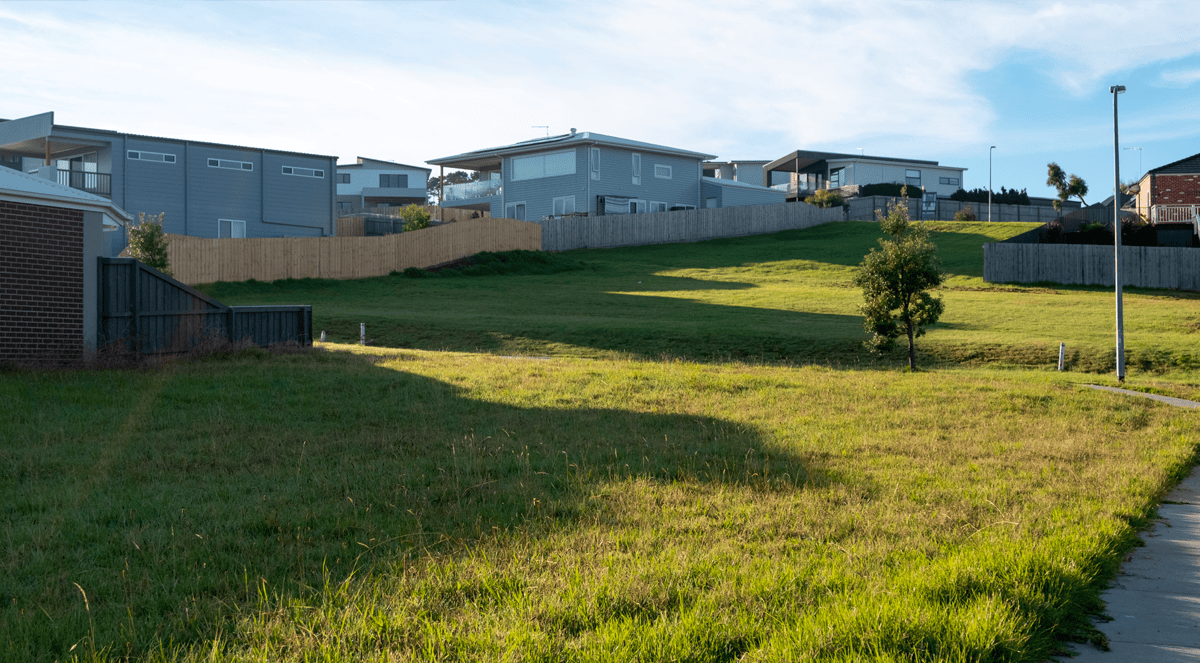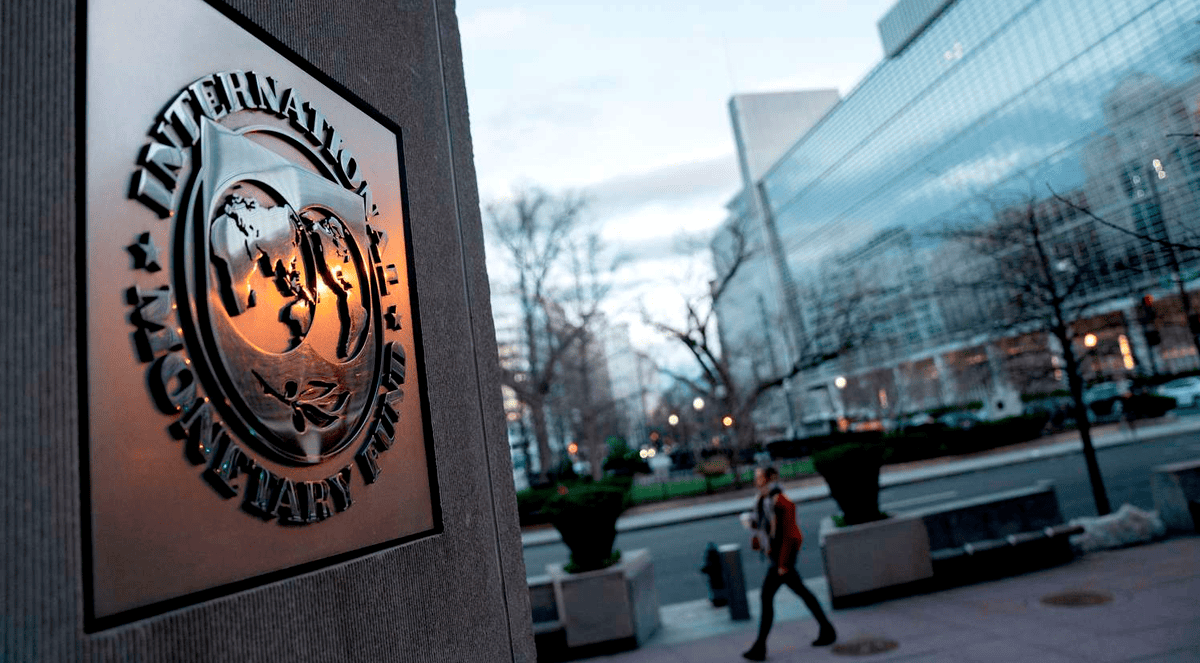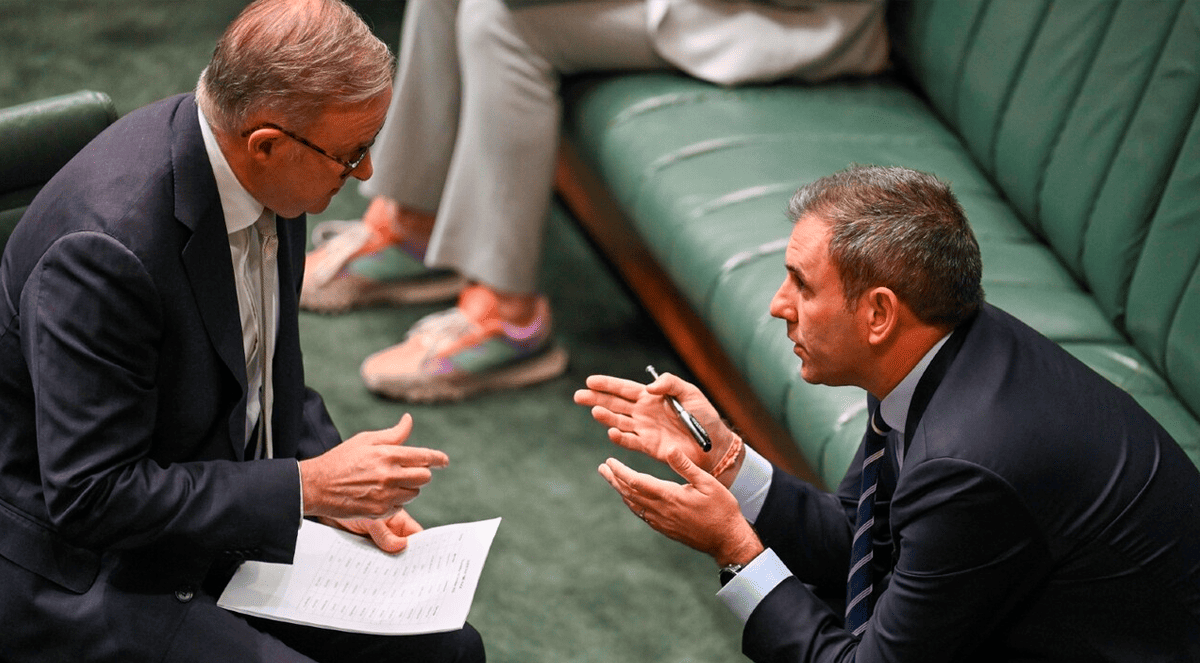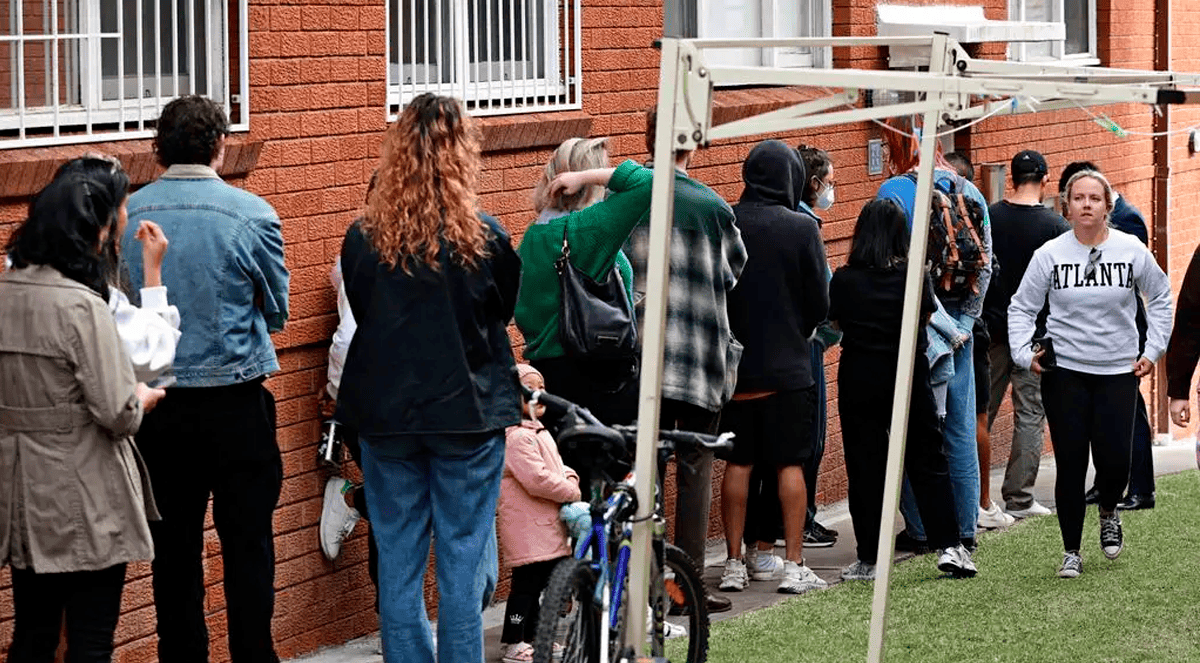Features > Property News & Insights > Market updates
If inflation is coming down, why is the RBA talking up the possibility of rate rises?

KEY POINTS
- The Reserve Bank of Australia has dismayed mortgage holders by warning that it could still hike rates further if it thinks inflation is not coming down fast enough
- Most forecasters - including the Big 4 banks - still expect the next move in interest rates to be down, not up
- Australia’s “real” cash rate is still low at just 0.25%
The main reaction to the Reserve Bank of Australia (RBA) board’s first interest rate call for 2024 surprisingly seems not to be the decision itself.
It was pretty much a sure bet that with inflation falling faster than even the RBA had forecast, the central bank would at least keep rates on hold at 4.35% (the highest cash rate in more than a decade) at its February meeting, with markets even factoring in a tiny chance beforehand that the RBA could even cut rates.
Inflation in the December quarter of 2023 came in at an annualised 4.1% - the RBA had forecast it would be much higher at 4.5%.
Instead, just about every commentator honed in on this pronouncement from the board: “A further increase in interest rates cannot be ruled out”.
Which was then followed up by Governor Michele Bullock at her press conference:
“We haven't ruled anything out and we haven't ruled anything in.”
“So I would say we have maintained the option that it might be…. that there has to be more rate rises, but there might not be either.”
“Nothing's in, nothing's out.”
Should mortgage holders despair or take that with a grain of salt?
“The Reserve Bank board's post-meeting statement was a short, sharp kick in the teeth to millions of Australians struggling with higher mortgage repayments,” declared ABC business reporter, Michael Janda.
“Many analysts thought the bank would either openly state rates had probably peaked, or at least play a dead bat.”
“'Job is not done' on fighting inflation: RBA” was the gloomy headline in the Financial Review.
But there is some comfort for stressed mortgage holders from an RBA insider.
Until late last year, Luci Ellis was an Assistant Governor at the Reserve Bank.
She’s now the Chief Economist at Westpac and explains the RBA’s decidedly “hawkish” tone like this:
“Although growth in the economy has been soft and a little softer than the Reserve Bank expected, they do still assess that the level of demand is outstripping supply and that the labour market remains tight.”
“So they are still concerned that services inflation could stay higher for longer, and that's why they're not completely ruling out a further rate hike, unlike some of their peers (other central banks) overseas.”
“But as we've (Westpac) stated before, we don't think it will come to that over time.”
Luci Ellis says she still believes the RBA “might cut rates a couple of times towards the end of this year.”
Ms Ellis’ view is shared by all the Big 4 banks, with the Commonwealth Bank still predicting three rate cuts from September this year and its Head of Australian Economics, Gareth Aird, confidently declaring:
“We do not expect the RBA to act on its hiking bias.”

It pays for central bankers to be vague…
Another way of interpreting RBA Governor Michele Bullock’s “Nothing's in, nothing's out” pronouncement is to look at the fate that befell her predecessor.
Philip Lowe famously provided “forward guidance” in a number of speeches in 2021, declaring that it was unlikely the cash rate (then at the emergency pandemic low of 0.1%) would be raised until 2024.
But with inflation soaring, the RBA changed course and started relentlessly raising the cash rate from May 2022.
Governor Lowe was forced into making a humiliating apology in November 2022, stating he was "sorry that people listened to what we've said and acted on that, and now find themselves in a position they don't want to be in."
His term was not renewed by Treasurer Jim Chalmers.
The moral of the story is it pays to not say much publicly about the future of anything, especially interest rates when you are RBA Governor.
In fact, if you listened to Michele Bullock’s hour-long post-rate decision press conference (the first ever by an Australian central bank chief), she was only equivocal about three things:
1. The Albanese government’s revised Stage 3 tax cuts would not add to inflation
2. It was not a mistake to raise the cash rate to 4.35% in November 2023
3. Taylor Swift’s concert tour of Australia would not add to inflation if everyone was sensible like Michele Bullock’s own children and saved up for their tickets by not spending money on other things.
“Real” interest rates
Also key to the RBA’s warning that it might need to raise rates again could be the fact that Australia’s “real” interest rate is actually very low.
So what is the real interest rate?
“Put simply, it's the nominal interest rate that takes into account the impact of inflation:
Real interest rates = Nominal interest rate - headline inflation rate, “ explains Hans Lee, the Senior Editor at Livewire Markets.
“Although central banks and your financial institution will quote you a nominal interest rate, it is the real rate that informs where that nominal interest rate may go.”
So if you use that formula, the RBA’s current cash rate (4.35%) minus the latest headline inflation rate (4.1%), Australia’s “real” cash rate is currently 0.25%.

“Real interest rates are also a useful guide to whether monetary policy is easy or tight,” says Lee.
On that reading, at just 0.25%, monetary policy in Australia is only slightly contractionary.
That, of course, is little comfort to households who took out big mortgages when interest rates were at emergency lows and have experienced no less than 13 hikes in the cash rate.
As the RBA itself acknowledged this week in its quarterly Statement on Monetary Policy, "Around 5% of borrowers are currently estimated to have insufficient income to meet their most essential expenses and mortgage payments, and so are drawing down on savings or finding other ways to increase their income or reduce expenditure."
Let’s hope that Luci Ellis is right, with her “we don't think it will come to that” prediction as far as higher interest rates go, and her forecast of rate cuts later this year.
Stay Up to Date
with the Latest Australian Property News, Insights & Education.




.png?width=292&height=292&name=Copy%20Link%20(1).png)
 SIGN UP FOR FREE NEWSLETTER
SIGN UP FOR FREE NEWSLETTER







%20Scott%20Kuru%20DPU%20145.jpg?width=1920&height=1080&name=Senate%20Inquiry%20Forced%20the%20RBA%20to%20Admit%20the%20Housing%20Crisis%20Will%20Never%20Be%20Fixed%20(It%20Was%20All%20a%20Lie)%20Scott%20Kuru%20DPU%20145.jpg)



%20Scott%20Kuru%20DPU%20141.jpg?width=1920&height=1080&name=The%20Senate%20Just%20Exposed%20Australias%20Biggest%20$80%20Billion%20Housing%20Fraud%20(Inquiry%20Launched)%20Scott%20Kuru%20DPU%20141.jpg)




%20Scott%20Kuru%20DPU136.jpg?width=1920&height=1080&name=Aussies%20Just%20Got%20Hit%20With%20Double%20Taxes%20on%20Everything%20(This%20Has%20Gone%20Too%20Far)%20Scott%20Kuru%20DPU136.jpg)


%20Scott%20Kuru%20DPU%20133.jpg?width=1920&height=1080&name=JUST%20IN%20Something%20Major%20Just%20Flipped%20Australia%E2%80%99s%20Property%20Market%20for%202026%20(No%20One%20Saw%20This%20Coming)%20Scott%20Kuru%20DPU%20133.jpg)


.jpg?width=1920&height=1080&name=Rental%20Prices%20At%20Record%20Highs%20And%20Vacancy%20Rates%20At%20All%20Time%20Lows%20(New%20Data%20Reveals).jpg)
%20%20DPU%20EP%2014.jpg?width=1920&height=1080&name=Investors%20Shutting%20Out%20First%20Home%20Buyers%20(Investors%20At%20Record%20Highs)%20%20DPU%20EP%2014.jpg)

.jpg?width=1920&height=1080&name=Darwins%20Property%20Market%20Boom%20or%20Dangerous%20Gamble%20(REVEALED).jpg)

.jpg?width=1920&height=1080&name=The%20RBA%E2%80%99s%20Rate%20Cut%20Could%20Explode%20House%20Prices%20(Here%E2%80%99s%20Why).jpg)








.jpg?width=1920&height=1080&name=Warning%2c%20You%20Might%20Be%20Facing%20Higher%20Taxes%20Soon%20(1).jpg)




.png?width=1920&height=1080&name=Rate%20Drops%20Signal%20BIGGEST%20Property%20Boom%20in%20DECADES%20(1).png)

.jpg?width=1920&height=1080&name=Labor%20vs%20Liberal%20These%20Housing%20Policies%20Could%20Change%20the%20Property%20Market%20Forever%20(1).jpg)
.jpg?width=1920&height=1080&name=QLD%20Slashes%20Stamp%20Duty%20Big%20News%20for%20Investors%20%26%20Home%20Buyers%20(1).jpg)
.jpg?width=1920&height=1080&name=Trump%20Just%20Slapped%20Tariffs%20%E2%80%93%20Here%E2%80%99s%20What%20It%20Means%20for%20Australia%20(1).jpg)
.jpg?width=1920&height=1080&name=Federal%20Budget%202025%20More%20Debt%2c%20No%20Housing%20%E2%80%93%20Here%E2%80%99s%20What%20You%20Need%20to%20Know%20(1).jpg)
.jpg?width=1920&height=1080&name=Australias%20Housing%20Crisis%20is%20about%20to%20get%20MUCH%20Worse%20(New%20Data%20Warns).jpg)
%20(1).jpg?width=1920&height=1080&name=Australias%20RENTAL%20CRISIS%20Hits%20ROCK%20BOTTOM!%20(2025%20Update)%20(1).jpg)
%20(1).png?width=1920&height=1080&name=Is%20Adelaide%20Still%20a%20Good%20Property%20Investment%20(2025%20UPDATE)%20(1).png)
.jpg?width=1920&height=1080&name=RBA%20Shocks%20with%20Rate%20Cuts!%20What%E2%80%99s%20Next%20for%20Property%20Investors%20(1).jpg)
%20(1).jpg?width=1920&height=1080&name=I%20Predict%20The%20Feb%20Rate%20Cut%20(My%20Price%20Growth%20Prediction)%20(1).jpg)
.png?width=1920&height=1080&name=Why%20Property%20Prices%20Will%20Rise%20in%202025%20Market%20Predictions%20(1).png)
.jpg?width=1920&height=1080&name=Why%20Investors%20Are%20Choosing%20Apartments%20Over%20Houses%202%20(1).jpg)
.jpg?width=1920&height=1080&name=Why%20Rate%20Cuts%20Will%20Trigger%20A%20Property%20Boom%20(1).jpg)
.jpg?width=1920&height=1080&name=Retire%20On%202Million%20With%20One%20Property%20(Using%20SMSF).jpg)
.jpg?width=1920&height=1080&name=4%20Reasons%20Why%20You%20Should%20Invest%20in%20Melbourne%20Now%20(1).jpg)
%20(1).jpg?width=1920&height=1080&name=Old%20Property%20vs%20New%20Property%20(Facts%20and%20Figures%20Revealed)%20(1).jpg)
%20(1).jpg?width=1920&height=1080&name=Will%20The%20New%20QLD%20Govt%20Create%20a%20Property%20Boom%20or%20Bust%20(My%20Prediction)%20(1).jpg)
%20Scott%20Kuru%20(1).jpg?width=1920&height=1080&name=Inflation%20Hits%20Three-Year%20Low%20(Will%20RBA%20Cut%20Rates%20Soon)%20Scott%20Kuru%20(1).jpg)
.jpg?width=1920&height=1080&name=How%20to%20Buy%20Investment%20Property%20Through%20SMSF_%20The%20Ultimate%20Guide%20(1).jpg)
.jpg?width=1920&height=1080&name=Victoria%20Slashes%20Stamp%20Duty%20Melbourne%20Set%20to%20Boom%20Scott%20Kuru%20(1).jpg)
.png?width=1571&height=861&name=Are%20Foreign%20Buyers%20Really%20Driving%20Up%20Australian%20Property%20Prices%20(1).png)
.jpg?width=1920&height=1080&name=The%20Single%20Factor%20That%20Predicts%20Property%20Growth%20Regions%20(1).jpg)
%20Scott%20Kuru%20(1).jpg?width=1920&height=1080&name=My%20Prediction%20On%20Rates%20%26%20Negative%20Gearing%20(Market%20Crash)%20Scott%20Kuru%20(1).jpg)

-1.png?width=1920&height=1080&name=Major%20Banks%20Cut%20Rates%20Will%20RBA%20Follow%20Suit%20(Sept%20Rate%20Update)-1.png)
%20Scott%20Kuru-1.png?width=1920&height=1080&name=Rate%20Cut%20Coming%20What%20New%20Zealands%20Move%20Means%20for%20Australia%20(Sept%20Prediction)%20Scott%20Kuru-1.png)
%20(1).jpg?width=1920&height=1080&name=Buy%20when%20the%20interest%20rates%20are%20high!%20(Why%20you%20must%20buy%20now!)%20(1).jpg)
.jpg?width=1920&height=1080&name=Carms_Revised%20Taxes%20Due%20Aug%209%20YT%20Thumbnail02%20(1).jpg)
.jpg?width=1920&height=1080&name=Carms_Too%20Little%20Too%20Late%20Aug%207%20YT%20Thumbnail01%20(1).jpg)









.jpg?width=1920&height=1080&name=Carms_Rate%20Drop%20In%20July%20Jun%2010%20YT%20Thumbnail02%20(1).jpg)
.jpg?width=1920&height=1080&name=Carms_Own%20a%20Property%20V6%20Jun%205_YT%20Thumbnail%20(1).jpg)









.png?width=1920&height=1080&name=Artboard%201%20(3).png)






.jpg?width=1920&height=1080&name=YT%20thumbnail%20%20(1).jpg)

